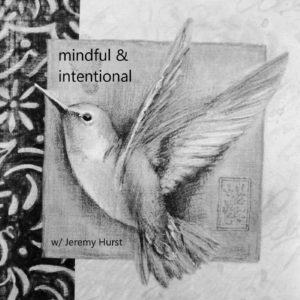Digital Minimalism, by Cal Newport, has long been on my short-list of books to read, but for some reason, it kept getting bumped downward. Earlier this year, I finally picked it up as an attempt to be more thoughtful about how I use digital technologies. But what started as a narrow analysis based on one book, ended with picking up a number of other books and expanding my scope of analysis. These 10 reflections are the result of that process.
There is more work to be done here, but this shall suffice as a starting point…
Table of Contents:
-
Ecology of human experience
-
Sovereignty of mind
-
Mindfulness
-
What NOT to pay attention to
-
Stoicism
-
What TO pay attention to
-
Time
-
Money
-
Space
-
How
Reflection #1: A human life is an ecological system
I once heard a story about how a plot of land was restored in South Africa. The area had previously been filled with cattle farms, but the farms went bust due to over-grazing and tough terrain. As such, the land was in shambles. That is, until the owners came into contact with a prominent ecologist. The ecologist told the landowners that they must partner with the land if they are to restore it. He showed them how to pack scrub into low points on the land to absorb runoff and abate erosion. As they did that, grasses began to grow, encouraging wildebeest and waterbuck to return. With those came flocks of birds, furthering the spread of plant life. Eventually, baboons, lions, leopards, rhinos, and elephants all began to thrive. Today, the land is home to the Londo Lozi Wildlife Reserve, one of the most beautiful reserves on earth.
The water, plants, animals, topography, climate, all of it is connected. Over the years, I’ve come to realize that human life is much the same. The organization or disorganization of your home, your mental and physical health, your emotional and spiritual wellbeing, who you surround yourself with. It’s all one interconnected system. You might think of it as the ecology of human experience.
It occurs to me that, if I am to arrive at a philosophy of technology use, what I’m really after is a philosophy of life.
Reflection #2: Sovereignty of mind
If everything is connected, where is the right place to start?
There’s a book I love called Figuring by Maria Popova. Early in the first chapter, she offers up a question.
How does a person come into self-possession and sovereignty of mind against the tide of convention and unreasoning collectivism?
From the moment we are born, we become creatures of convention. Our entire being is sculpted from the clay of social conditioning. Behaviors are developed based on seeking affection and approval. What to do to fit in and to be liked? What defines your community and culture?
I won’t pretend to know the answer to her question, but I will offer an inversion. One sure-fire way to fail at that pursuit is to exist in a purely reactive state. Simply allow external factors and ephemeral stimuli to dictate your internal state.
There’s no shortage of these in modern society. Email, social media, constant connectivity in general, all of these encourage reactivity. Attention is coopted by recency and sensationalism.
It seems to me that proactivity and intentionality are necessary prerequisites to sovereignty of mind.
Reflection #3: Claiming control of attention
By proactivity and intentionality, I mean deciding from first principles what deserves one’s attention.
That sentence was easy to write, but it is perhaps one of, if not THE, most difficult things a person can do.
For me, the most impactful tool in the toolbelt has been mindfulness. A painstaking and relentless focus on the present moment does wonders for claiming control of attention.
When first learning to meditate, a common exercise involves focusing on the breath. As a crutch, you can even count the breaths one-by-one as they go by. You can try it right now if you’d like. Find a quiet spot and sit down in a comfortable position. Close your eyes, take a few deep breaths, then allow your breathing to resume as normal. Count each breath as it goes by. Inhale, exhale; that’s one. Inhale, exhale; two.
What number did you reach before becoming distracted?
For me, it took me about a month to reach 30, and a full 6 months to reach 100.
The profound thing for me was that, before trying that exercise, I was a firm believer that I controlled my thoughts. I decide what to think and then I think the thoughts. But the exercise made it patently obvious that thoughts simply appear into consciousness, seemingly out of thin air. One moment I was counting breaths and the next I was lost in thought about some random topic unaware of what number I left off on.
Another exercise involves paying close attention to the tiny sensations happening all over the body. When you do so, you become aware of a slight tingling or aliveness that always seems abuzz.
This practice of coming down out of the head and into the body is an amazing tool for becoming more present and aware. As human beings, we cannot help all of the tiny physiological reactions we have to external stimuli. But when we tune into the physicality of the reaction, we develop an ability to take countermeasures before things go awry.
Reflection #4: What NOT to pay attention to
As we cultivate better attention, we, of course, have a decision to make about where to direct our reclaimed attention.
Given that I am in no position to determine where your attention should reside, allow me to instead make a counterpoint.
Distractions are just that, distractions. I make it a habit of cataloging mine via a simple process. I take a sheet of paper and write a line down the middle. On the left, I make a list of the things that truly matter to me. On the right, I make a list containing everything that gets in the way of the things I just listed on the left. On a recent iteration of the list, I included digital distractions, a few psychological tendencies, and also a few people that seem to be impeding my growth.
Reflection #5: The Stoics
Stoic philosophers have a lot to say about where not to direct our attention.
The single most important practice in Stoic philosophy is differentiating between what we can change and what we can’t, what we have influence over and what we do not.
Allowing things one has no control over to dictate one’s internal state is a fool’s errand.
Reflection #6: What TO pay attention to
Coming back to the affirmative, I find myself spending increasing amounts of time thinking about questions that get at the core of my being.
Why am I here?
What does it mean to live a good life?
What does wealth and abundance look like for me?
My desire here is not to share my answers to these questions, but rather to ask if you’ve considered such questions for yourself?
A great book I’ve read on the subject of grappling with these sorts of questions is called Start With Why. In the book, Simon Sinek describes how the most impactful leaders, whether at the helm of corporations or cultural upheavals, have always started with why. They start with why because it cuts deeper than facts and figures. It isn’t about logic and rationality. It’s raw. It’s emotional. When an individual taps into a compelling why, and they can find others for whom that why deeply resonates, a movement is born.
An important thing to point out here is that I don’t believe it matters how big or small the why ultimately is. Elon Musk is dead set on making humanity a multi-planetary species while I’m content bringing mindfulness and simplicity to more people in more ways.
Reflection #7: Time
Another aspect of dealing with important questions is having adequate time to do so. One could do worse than reference Thoreau in Walden when it comes to time.
The cost of a thing is the amount of what I will call life which is required to be exchanged for it.
I interpret “life” in this context to mean the amount of time and energy required to obtain something. He seems to suggest that time is one of our most valuable resources. I would agree.
If we circle back to sovereignty of mind, I hope I was clear in the implication that it’s difficult to obtain. And that being the case, difficult things take time.
In a modern context, many spend egregious amounts of spare time staring at screens. Myriad digital novelties keep us watching, tapping, and scrolling. All the while, our important faculties atrophy, faculties like the ability to explore and clarify hard problems, the ability to regulate emotions, and the ability to build moral courage.
Reflection #8: Time is money
Assuming that you agree with the premise that time is important, a question comes to mind. Is it possible to obtain more time?
While time itself is finite, it turns out that money can buy time. For example, I pay my cleaning lady because I place a higher value on 3 hours than I do on the money she charges.
Of course, this idea has limitations. I rather spend time with a good friend on my birthday than receive a visa gift card in the mail. But it’s important to acknowledge the oh so important role of money as a way to free up time.
Reflection #9: Space
Albert Einstein can be credited with forever joining the concepts of time and space. But leaving general and special relativity aside, I’ll take a more pragmatic angle.
If one is to have sufficient time to grapple with big questions, he or she should also have sufficient space. Said differently, I am arguing in favor of solitude as an essential tool for self-discovery. Not necessarily solitude to the degree of Thoreau in Walden or Boyd Varty in his retreat to nature, but simply solitude meaning outside of the influence of other human minds. No people, books, articles, music, podcasts, videos, games, or anything. Just a person with their thoughts. It worries me greatly that solitude seems to have become one of the most frightening propositions for modern people.
Reflection #10: After why, comes how
It’s not lost on me that our prolific tool-making ability is something that defines us as a species. But this sword has two edges. Nuclear warheads can both dispose of authoritarian dictators and keep them in power. Gene editing and sequencing could cure cancer, but could also herald designer babies and further income inequality.
Once you have determined your why, the next question is how. Which tools will you bring to bear and how will you optimize their use to best accomplish your goals?
I am a techno-optimist through and through. I wouldn’t be building a software company if that wasn’t the case. But I fear that too few of us spend time with the fundamental questions. We don’t take time to consider the role that technology plays in our lives. And more alarmingly, it seems that many of us don’t take the time to consider what sort of life we truly want to lead.
This post originally appeared here on the Idenati blog, and you can listen to it in podcast form here.
Like this:
Like Loading...



